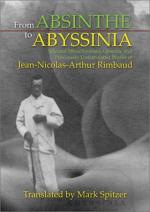|
This section contains 9,140 words (approx. 31 pages at 300 words per page) |

|
SOURCE: Aboulaffia, Victor-Guy. “Rimbaud and the Ideology of Art for Art's Sake.” Nineteenth-Century French Studies 22, nos. 1 & 2 (fall-winter 1993-1994): 172-94.
In the following essay, Aboulaffia contends that Rimbaud rejected the notion of “pure poetry” as an art form aimed at elite readers.
Arthur Rimbaud's first act of aesthetic revolt can be sensed in the way he opposed the dominant writing protocols of the Parnasse poetry school.1 This aestheticist movement endorsed a set of constraining idealistic assumptions regarding literary activity, which gave an exaggerated importance to technical skills over content, and demanded an attitude of emotional detachment on the poet's part, in a somewhat uncanny return of a repressed Classical rigor, now triumphant over the excessive and unruly affects of the Romantic period. Leconte de Lisle's strict alexandrine verse poem entitled “Le Sommeil du condor” illustrates that belated type of aristocratic sublimity, as the majestic, solitary bird of prey mournfully...
|
This section contains 9,140 words (approx. 31 pages at 300 words per page) |

|


